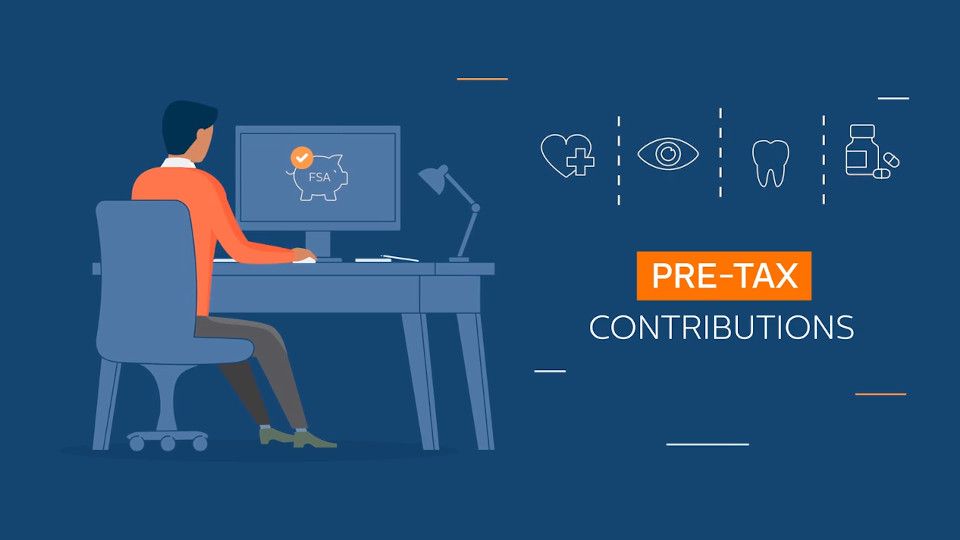Administered by AleraPay (powered by AleraEdge)
Flexible Spending Accounts (FSAs) allow you to save money before taxes are taken out of your pay and use those funds to pay for qualified expenses.
You can choose your FSA contributions as a new hire, during Open Enrollment and within 30 days of a qualifying life event. If you want to contribute (or take advantage of the limited rollover for the Health Care FSAs), you must re-enroll for the FSAs every year during Open Enrollment — plans will not automatically continue without a new enrollment.
| Health Care FSA | Limited Purpose Health Care FSA | Dependent Care FSA | |
|---|---|---|---|
| Eligibility | All benefit-eligible colleagues except HSA participants | HSA participants | All benefit-eligible colleagues |
| Eligible Expenses | Medical, dental and vision | Dental and vision only | Child daycare, before/after school care, babysitters Elder daycare |
| Maximum Annual Contribution | $3,300 for 2025 | $3,300 for 2025 | $5,000 ($2,500 if married and filing taxes separately) |
| Roll Over Provision | You can carry over up to $640 into 2025 and up to $660 into 2026, unused balances over these amounts will be forfeited. | No rollover | |
Health Care FSA and Limited Purpose Health Care FSA
You do not have to be enrolled in a medical plan to be eligible to contribution to a Health Care FSA. Health Care FSAs can be used to pay for things like your medical plan deductibles , coinsurance and copays, prescription medications, vision care, including eyeglasses and contact lenses, dental care, including orthodontia, and certain over-the-counter items.
If you are enrolled in a High Deductible Health Plan (HDHP) medical plan option and contribute to a Health Savings Account (HSA), you can have a Limited Purpose Health Care FSA, which can be used to pay for dental and vision expenses only. After you satisfy the HDHP deductible, you can also submit eligible medical expenses for reimbursement through your HAS by emailing AleraEdgePay@aleragroup.com and submitting proof.
For both Health Care FSAs and Limited Purpose Health Care FSAs:
- You can contribute up to $3,300 for 2025.
- The total contribution amount you elect is equally divided by the number of pay periods remaining in that year. That amount is deducted from each paycheck and set aside in your FSA.
- The full annual contribution amount is available to you on your benefits effective date (e.g., January 1).
- You will receive an FSA debit card to pay for qualified purchases. This card will allow you to remove funds from your FSA with a swipe of your card at medical and dental offices, hospitals, health care clinics, optical shops, pharmacies, and online pharmacies. Although you will not have to file a claim, you may still be required to submit copies of receipts for purchases made with the card.
- If you have an FSA balance and re-enroll in the FSA during Open Enrollment, up to $640 of unused funds can be rolled over from 2024 into 2025 and up to $660 of unused funds can be rolled over from 2025 into 2026. (Rollover amounts do not count toward the contribution maximum). Any additional money in your FSA will be forfeited.
- Expenses incurred in any plan year can be submitted for reimbursement until March 31 of the following year (so 2024 expenses are due by March 31, 2025; 2025 expenses are due by March 31, 2026).
- FSA funds can only be used for you, your spouse and your tax dependents.
- FSA funds cannot be used for expenses for domestic partners and/or other dependents who do not qualify as tax dependents.
Dependent Care FSA
Dependent Care FSAs are for parents and caregivers and can be used to cover expenses for child and elder care incurred while you work — including child and adult daycare, after-school programs and summer camps.
- You can contribute up to $5,000 annually ($2,500 if married and filing taxes separately).
- The total contribution amount you elect is equally divided by the number of pay periods remaining in that year. That amount is deducted from each paycheck and set aside in your FSA.
- Funds are available only as money is deposited into your account.
- Care may be for a child under age 13 and for older dependents, including children, spouses/domestic partners and parents who are physically or mentally unable to care for themselves and who live with you for more than half the year.
- There is no rollover feature. However, Dependent Care FSAs have a grace period after the plan year ends, allowing you to incur qualified expenses. The grace period for spending 2024 funds is January 1 – March 15, 2025. For 2025 funds, it is January 1 – March 15, 2026.
- Any FSA expenses incurred in 2024 (including the grace period) can be submitted for reimbursement until March 31, 2025.
If you are considered a highly compensated colleague (as defined by the IRS), your Dependent Care FSA contribution may need to be reduced or taxed to enable compliance with IRC nondiscrimination requirements. You will be notified if this impacts you once testing is completed.
